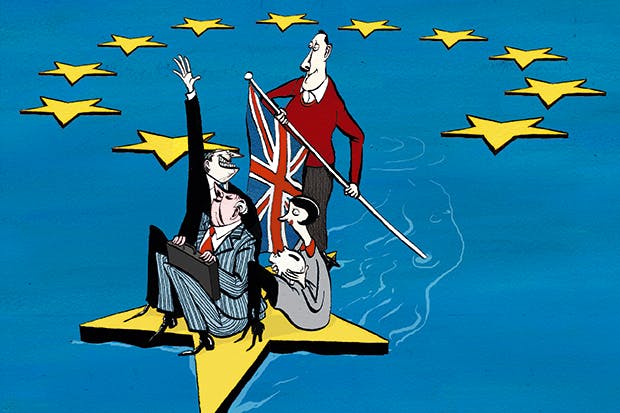Whatever happened to Singapore on Thames? Weren’t we, after leaving the EU, supposed to be forging a future as a deregulated, low-tax, business-friendly enclave situated 20 miles off Calais? It isn’t quite looking that way at the moment. We are reinventing ourselves as Brussels on Thames – only more so.
Do our bureaucrats really need to come down so heavily on big players in the realm of cloud computing games?
Our corporation taxes are rising at a time others are static or falling, we keep inventing new regulations which far outdo EU regulations – such as that allowing new employees to demand flexible working. We are ploughing ahead with green measures such as the ban on petrol and diesel cars from 2030 while the EU has allowed some flexibility. And now comes Microsoft’s planned acquisition of computer gaming company Activision – which EU regulators have just approved while our own Competition and Markets Authority (CMA) continues to block.
No country, it has to be said, has unfettered capitalism – indeed, US competition authorities have also blocked the Activision deal for now. There is a good case for supporting the blocking of mergers and acquisitions where it involves essentials such as food, utilities and so on. It makes sense to enact competition law when one company is trying to control the supply of a commodity, or squeeze out competition by buying up development sites, or with the banking system, where agglomeration can create institutions so large that they become too big to fail.
But do our bureaucrats really need to come down so heavily on big players in the realm of cloud computing games? It is hardly as if Microsoft – or anyone else – has, or could possibly have, a complete grip on the market. Call of Duty – which is apparently an Activision game, for anyone who is interested – might be popular now, but we know full well that that next year gamers will have moved on to something else.
Regulators will look as silly as if they had made a great fuss about regulating the price of a game of Space Invaders. There are matters on which it is better simply to let the big bad world of capitalism get on with it.
Even the great bonfire of EU red tape has turned out to be more of a stubbed-out fag in an ashtray. The regulations to be dumped have been reduced to a list of obsolete laws which Brexit has rendered meaningless anyway. At some point the government is going to have to come up with some great benefit to demonstrate that the pain of Brexit was worthwhile – and no, it can’t keep quoting the vaccine procurement programme. At present, it is failing miserably. We are recreating ourselves as a pale imitation of the EU – and just at the time that the EU itself is finally coming round to realising that lighter-touch regulation can invite investment and enterprise.







Comments